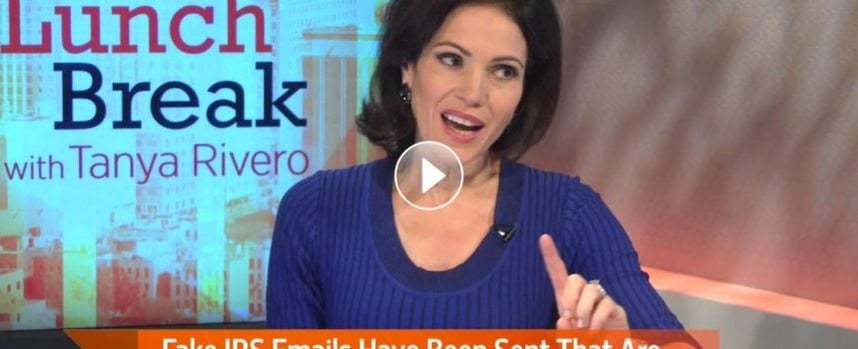Sources: Wall Street Journal; YouTube
The IRS is no stranger to scamming attempts. Unfortunately, as the WSJ's Laura Saunders warns in the above video, IRS scammers now have a new trick up their sleeves: targeting your email inbox.
The good news is, if you remain alert, you can avoid falling for scammers' tricks. Here's what you need to know.
1) The IRS doesn't initiate taxpayer contact by email.
The Internal Revenue Service (IRS) and its Security Summit partners issued an alert to taxpayers to be on guard against fake email purporting to contain an IRS tax bill related to the Affordable Care Act.
The IRS says that is has received numerous reports of the scam, which involves an email with an attachment. The email attachment is typically a fake CP2000 notice for the tax year 2015. That's your first red flag: a real CP2000 notice is mailed to taxpayers through the U.S. Postal Service. It is never sent as part of an email to taxpayers.
2) The fake CP2000 notices usually include:
- An Austin, Texas address.
- A reference to the Affordable Care Act (ACA) requesting information regarding 2014 coverage.
- A payment voucher listing the letter number as 105c.
- A payment request that taxpayers mail a check made out to "I.R.S." to the "Austin Processing Center" at a Post Office Box address.
- A check request (in addition to a "payment" link within the email itself).
3) If you receive this scam email, do not respond, and do not open the attachment.
Forward the email to phishing@irs.gov, and then delete it. This issue has been reported to the Treasury Inspector General for Tax Administration for investigation.
4) Remember, the IRS will never:
- Call to demand immediate payment over the phone, nor will the agency call about taxes owed without first having mailed you several bills.
- Call or email you to verify your identity by asking for personal and/or financial information.
- Demand that you pay taxes without giving you the opportunity to question or appeal the amount they say you owe.
- Require you to use a specific payment method for your taxes, such as a prepaid debit card.
- Ask for credit or debit card numbers over the phone or email.
If you receive phone calls or emails requesting this type of information, you're not talking to the real IRS. If for any reason you suspect you may be dealing with tax fraud, please don't hesitate to contact your wealth manager.









